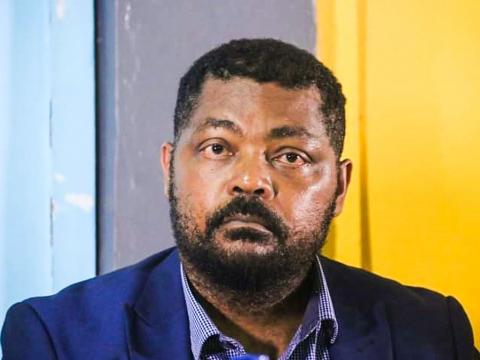By Mabinty M. Kamara
A joint research conducted by the Sierra Leone Association of Journalists (SLAJ) and researchers from the Bournemouth University in the UK has revealed the huge impact of the Corona virus disease on journalists in Sierra Leone.
The national survey published by SLAJ according to officials, had responses from more than 600 journalists across the country.
The report of the survey launched by the Deputy Minister of Foreign Affairs and International Cooperation, Madam Mamadi Gobeh-Kamara, titled the ‘Impact of Covid-19 on journalism in Sierra Leone' reveals that the pandemic affected almost every aspect of news production as well as the individual wellbeing of a majority of journalists across Sierra Leone.
It noted that financial difficulties was the single most-cited category of Covid-19 impact among the respondents, with 86% (n=550) strongly agreeing or agreeing they experienced monetary troubles, with 76% of journalists experiencing an increased sense of vulnerability.
It also revealed that provincial journalists and their news media institutions were the most affected in terms of financial difficulties and job insecurity than those in the Western Area.
On disaster resilience and capacity building trainings, the report revealed that 52%of Sierra Leone journalists have never participated in disaster resilience training with female journalists being the most vulnerable in terms of such knowledge compared to their male counterparts.
“Across Sierra Leone, a larger proportion (39.7%, n=173) of male journalists had received disaster resilience training either before or after the Ebola outbreak. In comparison, only 32% (n=65) of female journalists had received training. Significantly, 60.6% (n=123) women journalists reported they had received no training at all,” it reads.
It went on : “This is 12.4% more than the percentage of male journalists who fell into this category (48.2%, n=210) — which suggests the need for more focused training initiatives to address the gender imbalance in terms of access to disaster resilience training across Sierra Leone,” he said.
The report therefore revealed a high disaster training need for journalists across the country with special focus on the female journalists both in the rural and urban areas.
Speaking at the launch of the report, the Deputy Minister of Foreign Affairs and International Cooperation, Mamadie Ngobeh Kamara said Sierra Leone has experienced a number of disasters in recent years ranging from the Ebola epidemic to the recent fire outbreak at Susan’s Bay in Freetown, noting that journalists have been at the fore front of all of those disasters.
She commended the media and the journalist’s body, SLAJ for the critical role they continue to play to ensure they correct misinformation and disinformation meant to confuse the public.
However, she said the report notes that COVID-19 also negatively impacted on the wellbeing of journalists.
“Most media practitioners reported significant personal impact as a direct consequence. COVID-19 also affected the mental wellbeing of journalists with 59.3% reporting they experienced depression, while 76% reported increase sense of vulnerability, over 60% experience increased anxiety,” she read.
However, she said the situation is serious and needs to be addressed through cooperation, collaboration and networking or partnerships.
The government has a role to play as well as SLAJ and the individual media houses to collectively look at the recommendations and work together to address them, because COVID-19 will not be the last disaster to befall us,” said the deputy Minister.
Ahmed Sahid Nasralla, President of SLAJ, said the survey underlined the importance of strengthening disaster preparedness in the news industry.
“A healthy and thriving news sector must be at the heart of any crisis response. We must build the disaster resilience of journalists in this country to protect the vital role they play,” he said
Speaking at the launch through Zoom, Dr Chindu Sreedharan of Bournemouth University, the lead author of the survey report, said the findings are worrying as they highlight the extreme psychological impact the pandemic has had on journalists across Sierra Leone.
“With a majority of respondents reporting having suffered from depression and anxiety, the government and news organizations must come together to invest much-needed resources in protecting the emotional and mental health of media personnel in times of crisis,” he said
The survey forms part of Tie u Orja, a capacity-building initiative led by researchers at Bournemouth University in collaboration with SLAJ, Limkokwing University and Save the Children (Sierra Leone). It is funded by the UK's Global Challenges Research Fund (GCRF), which supports research to address urgent needs and challenges faced by developing countries.
Professor Lee Miles, disaster management expert at Bournemouth University and one of the authors of the survey, said Bournemouth University in close cooperation with SLAJ and other partners, will conduct further research-informed activities to build the capacity of journalists and crisis communicators.
Copyright © 2021 Politico Online 07/05/21








